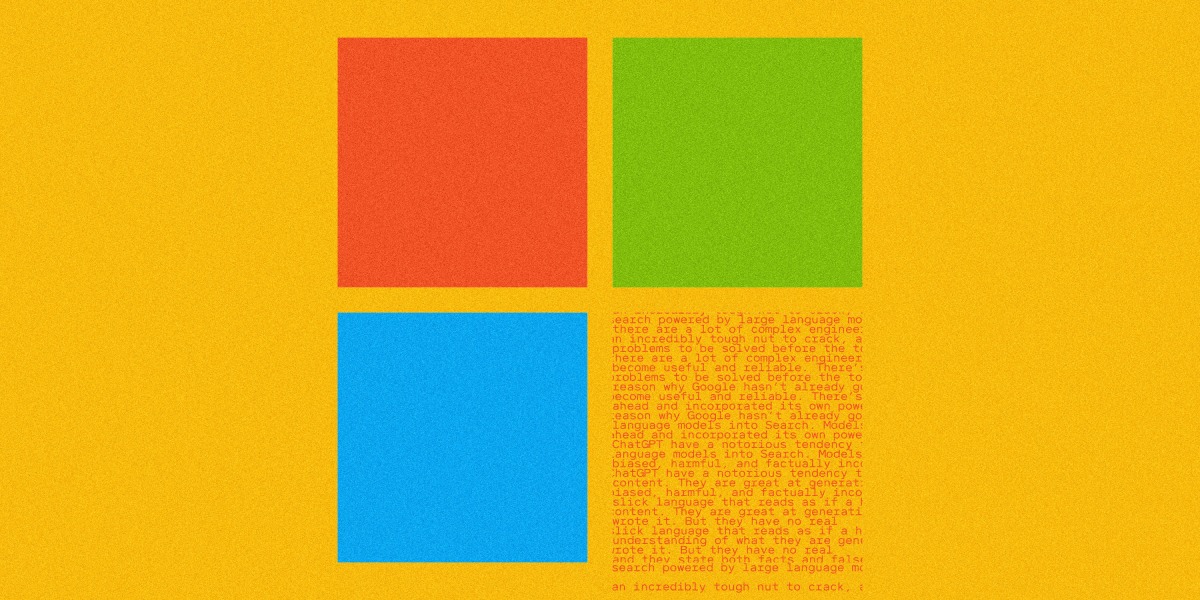
This is a big deal. If successful, it will bring powerful AI tools to the masses. So what would ChatGPT-powered Microsoft products look like? We asked Microsoft and OpenAI. Neither was willing to answer our questions on how they plan to integrate AI-powered products into Microsoft’s tools, even though work must be well underway to do so. However, we do know enough to make some informed, intelligent guesses. Hint: it’s probably good news if, like me, you find creating PowerPoint presentations and answering emails boring.
Let’s start with online search, the application that’s received the most coverage and attention. ChatGPT’s popularity has shaken Google, which reportedly considers it a “code red” for the company’s ubiquitous search engine. Microsoft is reportedly hoping to integrate ChatGPT into its (more maligned) search engine Bing.
It could work as a front end to Bing that answers people’s queries in natural language, according to Melanie Mitchell, a researcher at the Santa Fe Institute, a research nonprofit. AI-powered search could mean that when you ask something, instead of getting a list of links, you get a complete paragraph with the answer.
However, there’s a good reason why Google hasn’t already gone ahead and incorporated its own powerful language models into Search. Models like ChatGPT have a notorious tendency to spew biased, harmful, and factually incorrect content. They are great at generating slick language that reads as if a human wrote it. But they have no real understanding of what they are generating, and they state both facts and falsehoods with the same high level of confidence.
When people search for information online today, they are presented with an array of options, and they can judge for themselves which results are reliable. A chat AI like ChatGPT removes that “human assessment” layer and forces people to take results at face value, says Chirag Shah, a computer science professor at the University of Washington who specializes in search engines. People might not even notice when these AI systems generate biased content or misinformation—and then end up spreading it further, he adds.
When asked, OpenAI was cryptic about how it trains its models to be more accurate. A spokesperson said that ChatGPT was a research demo, and that it’s updated on the basis of real-world feedback. But it’s not clear how that will work in practice, and accurate results will be crucial if Microsoft wants people to stop “googling” things.
In the meantime, it’s more likely that we are going to see apps such as Outlook and Office get an AI injection, says Shah. ChatGPT’s potential to help people write more fluently and more quickly could be Microsoft’s killer application.
Language models could be integrated into Word to make it easier for people to summarize reports, write proposals, or generate ideas, Shah says. They could also give email programs and Word better autocomplete tools, he adds. And it’s not just all word-based. Microsoft has already said it will use OpenAI’s text-to-image generator DALL-E to create images for PowerPoint presentations too.
